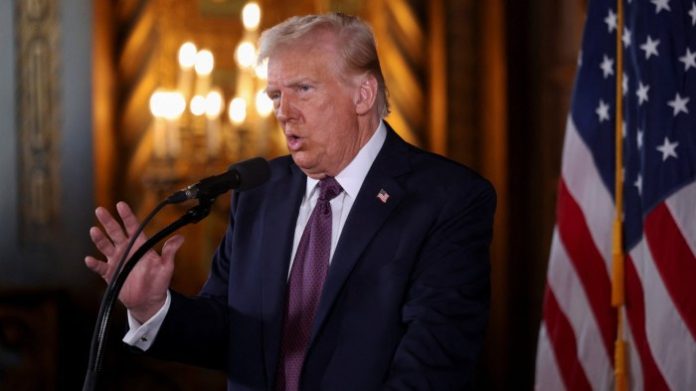Donald Trump has not ruled out the possibility of using force to acquire Greenland or take control of the Panama Canal. He also stated his intention to rename the Gulf of Mexico as the “Gulf of America.”
During a press conference held before he assumes office, the US president-elect threatened to utilize his country’s economic and military power against traditional allies to strengthen national security and expand territories.
When asked whether military or economic coercion would be used to secure Greenland or gain control of the Panama Canal, Trump responded, “No, I cannot guarantee that for either. However, we need them for economic security… We need Greenland for national security reasons.”
At the press conference in Florida, Trump vowed to impose high tariffs on Denmark unless they relinquished control of Greenland, a move he had previously attempted during his first term in office.
Earlier in the day, Danish Prime Minister Mette Frederiksen stated that Greenland, as an autonomous part of Denmark, was not for sale. She expressed willingness to cooperate with the US in the Arctic region.
Trump has pursued control of Greenland since 2019, citing its strategic importance in the Arctic. He also argued for US control of the Panama Canal, emphasizing its critical role.
In a controversial statement, Trump suggested annexing Canada through economic means, rather than military force. He also mentioned imposing higher tariffs on both Canada and Mexico due to deficits and immigration issues.
Additionally, Trump announced plans to rename the Gulf of Mexico to the Gulf of America, calling it a more fitting and beautiful name. He criticized Mexico as a dangerous place allowing illegal immigration into the US.
He warned of serious tariffs on Mexico and Canada while expressing a desire for peaceful relations with all countries.
The article further discusses Mexico’s rising crime rates and the response of Mexican President Claudia Sheinbaum to potential tariffs from the US, as well as preparations for potential deportations and trade barriers.
Additional reporting by Richard Milne




